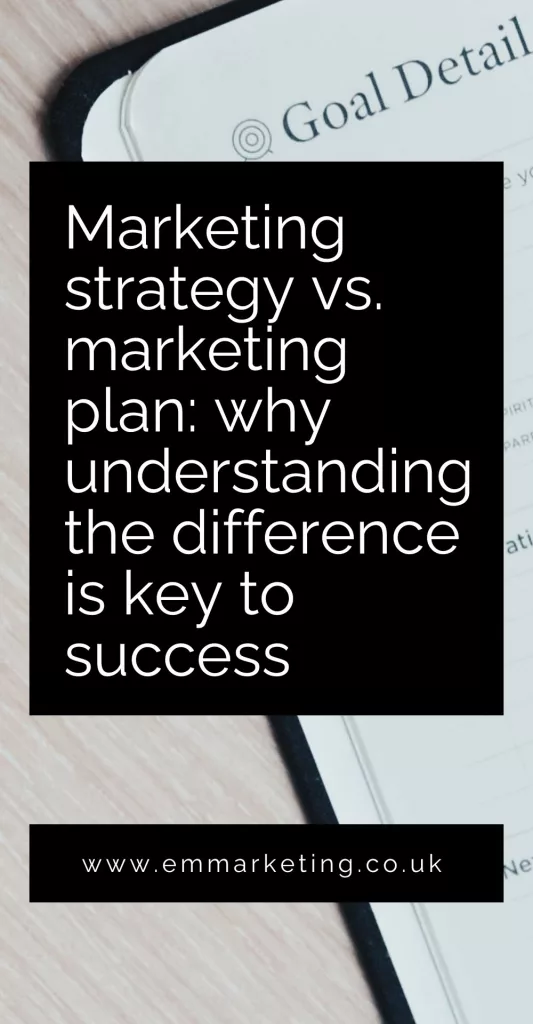Table of Contents
Introduction
In the world of marketing, the terms marketing strategy and marketing plan are often used interchangeably, but they each hold a unique purpose and function. Understanding their differences is essential for your small business to create a powerful roadmap for success. In this blog, I’ll explore the key differences and demonstrate how they work together.
What is a marketing strategy?
A marketing strategy is your overarching long-term plan for achieving your goals. It’s your long-term vision for success.
Key elements of a successful marketing strategy include:
- Marketing goals: your long-term objectives, such as increasing brand awareness, nurturing customer loyalty, and attracting new clients.
- Target audience: your ideal customers, what their needs and values are, and where and how they the services they need.
- Market research: understanding your competitors and industry trends.
- Brand identity: your brand mission and values, your brand voice, and those key messages that set you apart.
- Marketing channels: the platforms or channels you’ll use to connect with your audience, such as social media, email, or paid advertising.

What is a marketing plan?
A marketing plan, on the other hand, sets out the specific steps you’ll take to execute your marketing strategy and bring your strategic vision to life. It details what, when, and how you will achieve your goals.
Key elements of a successful marketing plan include:
- Content plan: a detailed plan outlining the content you will create and publish for each marketing channel.
- Timeline: a detailed schedule for executing all areas of the plan, including key dates and deadlines.
- Budget: the financial resources allocated to each marketing activity.
- Key performance indicators (KPIs): the metrics you’ll use to measure the success of each campaign or initiative. Typical KPIs include website traffic, lead generation, social media engagement, and sales conversions.
Key differences
The marketing strategy provides direction and high-level vision, focusing on the long-term approach (typically 1–5 years); the marketing plan focuses on the specific steps needed to implement the strategy over a shorter period, usually 12 months, with quarterly or monthly updates.
Conclusion
While your marketing strategy and marketing plan have different roles, you can see they work hand in hand and rely on one another, which is why it’s important to map out your long-term plan before you dive into the details of how and when you will achieve it. By clearly defining your marketing strategy and implementing an effective marketing plan, you can significantly increase your chances of long-term success.
If you’re ready to take your marketing strategy to the next level but need some help, drop me a message by clicking here, and we’ll work on it together.


Leave a Reply